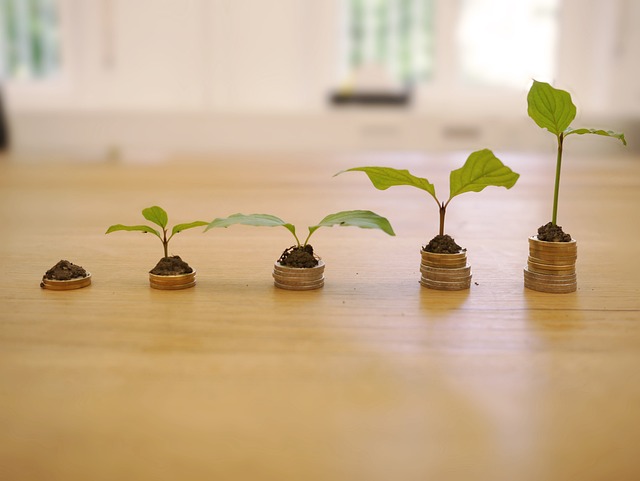
Sustainable Investing: Aligning Your Finances with Your Values
In recent years, sustainable investing has gained significant traction among investors who are not only looking for financial returns but also seek to make a positive impact on the world. This approach entails integrating environmental, social, and governance (ESG) criteria into investment decisions and aligning financial goals with personal values. This article will explore the concept of sustainable investing, its impact, and how you can start aligning your finances with your values.
Understanding Sustainable Investing
Sustainable investing, often referred to as socially responsible investing (SRI), encompasses a variety of strategies that involve evaluating investments through a sustainability lens. Rather than focusing solely on financial performance, sustainable investors consider how companies operate and their contributions to society and the environment.
The fundamental idea is to invest in businesses that demonstrate ethical practices, have a positive social impact, and prioritize environmental stewardship. By doing so, investors not only support these entities but also seek to mitigate risks associated with poor social and environmental practices. Sustainable investing can take various forms, including:
- Negative Screening: Excluding companies involved in activities considered harmful, such as fossil fuel extraction, tobacco production, or weapons manufacturing.
- Positive Screening: Actively seeking out companies that excel in ESG criteria, such as renewable energy firms or those with strong labor practices.
- Impact Investing: Investing in projects or companies directly intended to generate measurable social or environmental benefits alongside financial returns.
- Shareholder Advocacy: Using ownership stakes to influence corporate behavior by engaging in dialogue with management or voting on shareholder resolutions related to sustainability issues.
The Rise of Sustainable Investing
The shift towards sustainable investing is fueled by various factors, including growing awareness of social and environmental issues, the desire for ethical consumption, and increased transparency regarding corporate practices. Surveys indicate that a significant number of investors, particularly millennials and Gen Z, prioritize making investments that reflect their values. This sentiment is transforming the investment landscape, driving demand for ESG-focused investment products and prompting more companies to adopt sustainable practices.
Moreover, academic research increasingly demonstrates that sustainable investing can be financially beneficial. Numerous studies showcase a positive correlation between strong ESG performance and financial returns, debunking the myth that ethical investing sacrifices profitability. This has led institutional investors and asset managers to recognize the importance of integrating sustainability into their investment strategies.
The Benefits of Sustainable Investing
Investing sustainably offers numerous benefits, both personally and globally. On an individual level, aligning investments with values can provide a sense of purpose and fulfillment. For many, knowing that their money supports sustainable businesses or social causes is not just a financial decision; it is a reflection of their beliefs and aspirations for a better world.
From a broader perspective, sustainable investing contributes to constructing a more sustainable economy. By directing capital towards businesses that prioritize sustainability, investors play a crucial role in addressing pressing challenges such as climate change, inequality, and resource depletion. This collective effort can lead to innovations, sustainable job creation, and improved quality of life.
Additionally, sustainable investing can help mitigate risks that arise from poor ESG practices. Companies that disregard environmental regulations, mistreat employees, or engage in unethical practices often face legal, reputational, and financial risks. By avoiding such companies, investors can build more resilient portfolios.
Steps to Start Sustainable Investing
If you are eager to begin investing sustainably, here are key steps to follow:
First, define your values and the causes that resonate with you. Ask yourself what issues matter most to you and how you wish to see your investments reflect those beliefs. This could range from climate change and social justice to gender equality or corporate transparency.
Next, research sustainable investment options. Look into funds, stocks, or bonds that align with your value system and consider their ESG ratings. Many financial institutions and research firms provide ratings and analysis of companies based on their ESG performance, making it easier to identify suitable investments.
Consult with a financial advisor who specializes in sustainable investing. They can help navigate the myriad of options available and tailor an investment strategy that meets both your financial goals and ethical considerations. Make sure to discuss your criteria for sustainable investments during your consultation.
Consider diversifying your sustainable investment portfolio. Just like traditional investing, diversification mitigates risks. Look for various sectors and asset classes that align with sustainability. This can include renewable energy, sustainable agriculture, and green technology.
Challenges and Criticisms of Sustainable Investing
Despite its growing popularity, sustainable investing is not without challenges and criticisms. One major concern is the potential for “greenwashing,” where companies exaggerate their commitment to sustainability to attract investors. This can lead to confusion and erode trust in the sustainable investing space.
Additionally, there is ongoing debate about the efficacy of ESG metrics and ratings. Critics argue that the lack of standardized reporting makes it challenging to accurately assess a company’s sustainability performance. The inconsistency of definitions and criteria used for ESG ratings can lead to discrepancies and may mislead investors.
Another challenge is the misconception that sustainable investing yields lower financial returns. Although many studies indicate that sustainable investments can outperform their traditional counterparts, some investors remain skeptical. Education and clear communication on the financial benefits of sustainable investing are essential to dispel this myth.
The Future of Sustainable Investing
As public awareness of sustainability issues continues to grow, the future of sustainable investing appears promising. Financial institutions are increasingly launching ESG-focused products, and technological advances are facilitating the collection and analysis of ESG data. It is anticipated that regulatory frameworks surrounding sustainable finance will become more robust, providing greater transparency and accountability within the investing landscape.
Moreover, the integration of sustainable practices into business models is becoming a competitive advantage. Companies that demonstrate genuine commitment to ESG principles are likely to foster consumer loyalty and attract talented employees who share their vision. This shift towards sustainability will not only influence how businesses operate but also reshape the investment strategies of future generations.
Conclusion
Sustainable investing represents a significant opportunity to align your finances with your values while contributing to a more ethical and sustainable world. By understanding the principles of sustainable investing, navigating the available options, and critically evaluating potential investments, you can make informed decisions that reflect your beliefs. Whether it’s combating climate change, promoting social equity, or supporting ethical governance, sustainable investing empowers you to effect change through the choices you make with your capital.
As the demand for sustainable investment options continues to rise, engaging with this movement is not only a personal choice but also a collective effort toward shaping a more just and sustainable future for all. Begin your journey toward sustainable investing today and be an active participant in the change you wish to see in the world.


